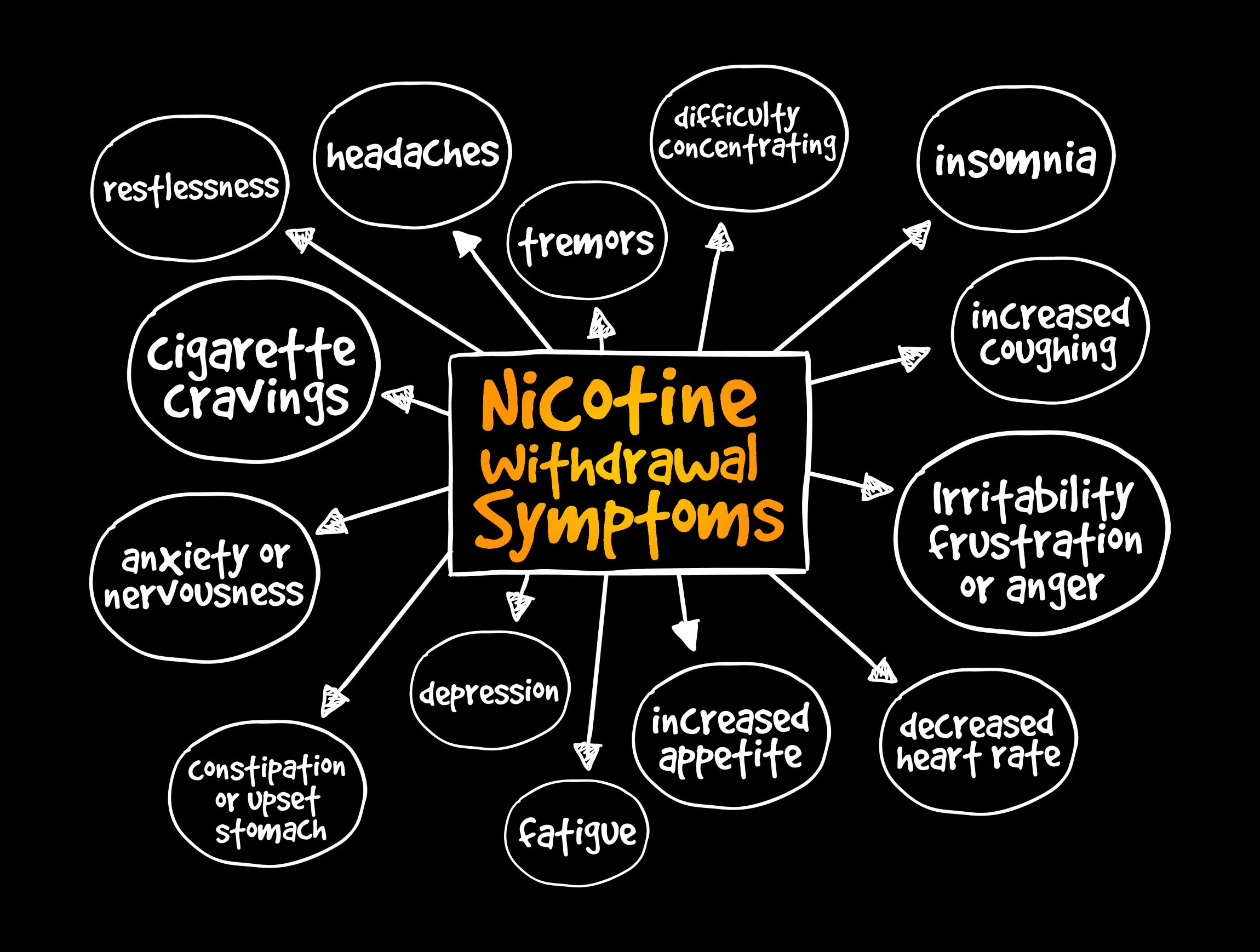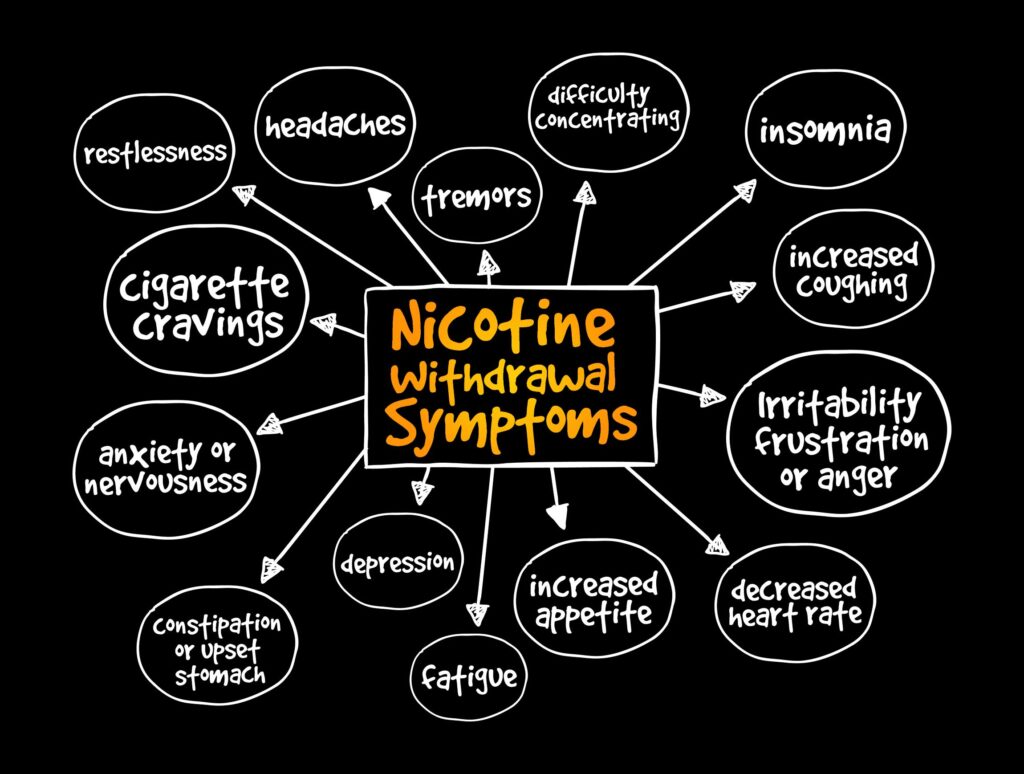Welcome back to another entry here on the Direct2Recovery blog! Last time we started talking about nicotine withdrawals, some of the more common physical symptoms of withdrawal. We are continuing on with that trend, talking about the mental, behavioral, and emotional symptoms that are likely to occur as well as answering just how long does nicotine withdrawal last. Without further ado, back to the info you seek!
Mental, Behavioral, and Emotional Symptoms of Nicotine Withdrawal
Just like physical symptoms, the intensity and frequency of these other symptoms can be different for everybody. It is safe to assume you will likely deal with some combination of the following symptoms:
Anxiety
Many people smoke because of the effect it has on their stress. The nicotine relaxes the body (at the cost of overall health) in many ways for smokers and removing that will have an effect. Anxiety is how your body handles (or doesn’t) stress. Because of this increase in stress, you can feel your anxiety shoot up for a few weeks as you quit. This tends to occur a few days into quitting and can last a few weeks.
Irritability
While your stress is higher, your body is also processing and experiencing other physical symptoms of withdrawal. All of this means your attention, mentally and physically may be elsewhere leaving you with a shorter fuse as you adjust. It’s totally normal and will pass. But do your best to be cognizant of the reason for your irritability and don’t take it out on anyone else. You’re working through something.
Depression
Last time we talked about how nicotine is a stimulant and the lack of it will cause fatigue. In that same vein, the lack of stimulant can manifest in a depressive state for those quitting. It can start the very first day you quit but should decrease with time. Typically withdrawal-related depression will be gone within a month or so but if you have a history of emotional disorders or depression it can last longer or manifest differently. This isn’t something to just grin and bear it, you can get medical help from your doctor to manage these symptoms.
Mental ‘Fog’
This may be the hardest to describe but it’s incredibly common. Without the common supply of chemicals your body expects, it can be difficult for your brain to work as it should. You might feel less alert, have a harder time focusing or paying attention and listening. In effect, it feels like you’re in a ‘fog.’ With time the fog will clear.
How long does nicotine withdrawal last?
Depending on how long you’ve smoked and how many cigarettes you have a day, symptoms of withdrawal can last anywhere from several days to several weeks. This is a typical timeline of withdrawal following your final cigarette:
- ~30min – 4 hrs: The nicotine wears off, cravings begin.
- ~10 hs: Feel restless, physically craving a cigarette. You may begin feeling sad or hopeless, unsure how to get through the time.
- ~24 hrs: Increased irritability and appetite.
- ~2 days: The nicotine begins to fully leave your system. You may develop headaches as this occurs.
- ~3 days: The nicotine is gone and your cravings may taper off. Anxiety will likely increase.
- ~1 week: You’ve cleared the first huge hurdle. You’re doing well, you’ve got this!
- ~2 to 4 weeks: You’ll still likely feel fatigued, or low energy, but the brain fog is beginning to clear and your appetite is settling as well. Depression and anxiety will be improving and your cough should be clearing some as well.
- ~5 weeks: and the withdrawal symptoms have passed. Now it’s time to keep a strong mental state to stay clean.
While we don’t specifically treat nicotine addiction here at Direct2Recovery, it doesn’t mean that it’s a ‘good’ addiction. All addictions are harmful but they are on a scale of course. Smoking will increase your risk of cancers and bring with it other various diseases and illnesses, but it is not as immediately destructive as others that may need a more robust treatment. For many smokers, they are able to kick the habit entirely on their own, as hard as that can be. If you or someone you know is trying to quit smoking, we hope these answers and strategies set you up for success!





